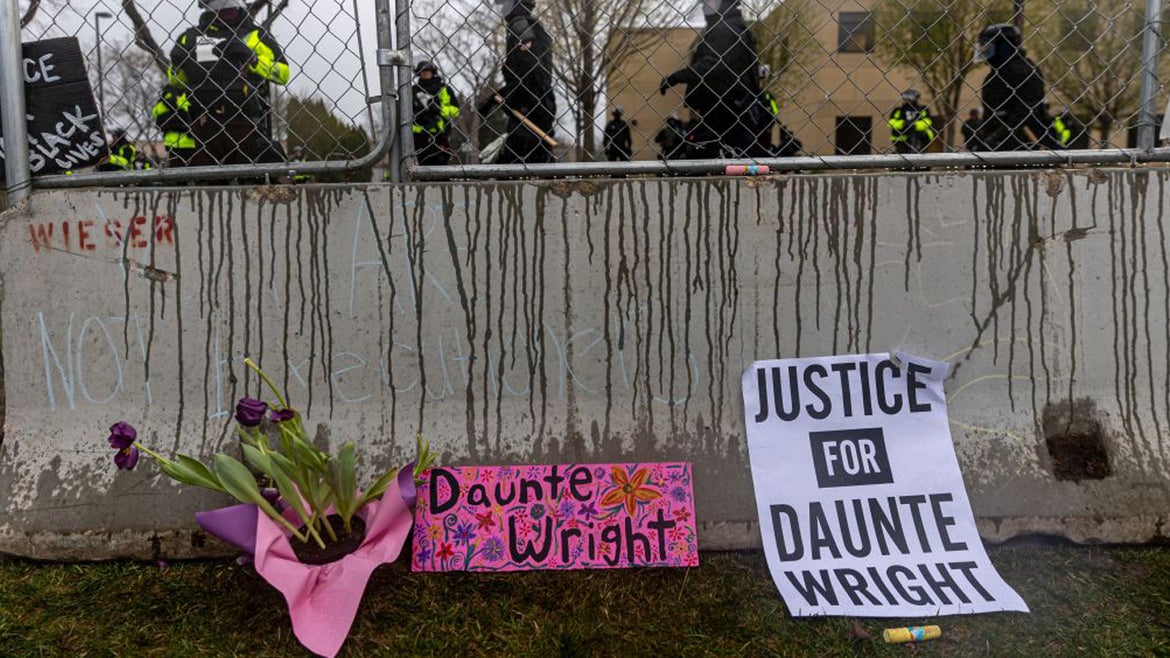Daunte Wright, 20, was shot during a traffic stop on April 11 when Potter said she accidentally pulled out her gun instead of her taser.
Kim Potter, the former Minnesota police officer who shot 20-year-old Daunte Wright during a traffic stop in April, has been found guilty of first- and second-degree manslaughter. A judge has ordered Potter held without bail despite her attorneys asking the judge to allow her to go home, CNN reported.
After the verdict was read, Potter’s lawyer could be seen with his head down in his hands. Potter could face a maximum of 15 years in prison for the first-degree manslaughter charge and receive a $30,000 fine, but since she has no prior criminal record, Minnesota sentencing guidelines recommend six to eight-and-a-half years in prison. She faces another 10 years for the second-degree charge.
“I cannot treat this case any differently than any other case,” Judge Regina Chu said in court, according to the AP.
The jury deliberated for 27 hours beginning Monday. Potter’s sentencing has been set for Feb. 18.
Before the conviction, Potter had been out of jail on $100,000 bail.
On April 11, Wright, who was Black, was shot during a traffic stop by former Brooklyn Center police officer Kim Potter, who claimed to have intended to pull out her taser but instead grabbed her gun and fired a single bullet.
Wright had an outstanding warrant and Potter claimed that Wright was trying to get back into his car when she shot him.
Video released of the incident shows Potter yell “taser” repeatedly before shooting Wright with her gun. She can then be heard saying, "Holy sh*t! I just shot him!"
Potter resigned from the police department a few days after Wright’s death. During the trial, Wright testified and said she was “sorry it happened.” The defense team also characterized what happened as a mistake, but prosecutors argued that despite it being an accident, the shooting was still a crime.
Cheers reportedly erupted outside of the courthouse when the verdict was read. Earlier this month, Minnesota Gov. Tim Walz asked the National Guard to be on call in case local authorities needed assistance after the verdict, The Wall Street Journal reported.






